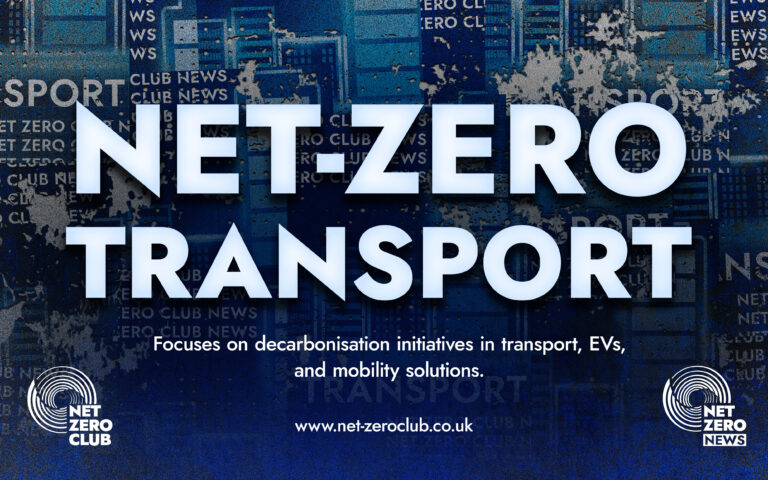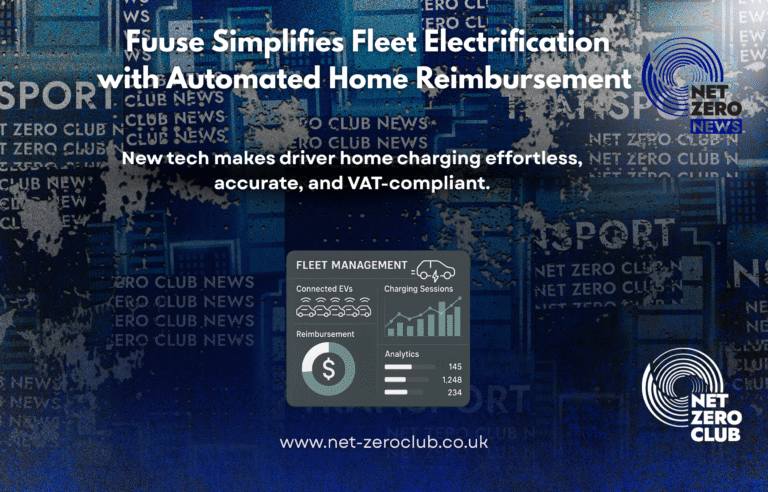Boosting EV Residual Values Amid Growing Fleet Exposure

Welcome, Net Zero News readers,
In the rapidly evolving landscape of electric vehicles (EVs), concerns surrounding their residual values are becoming more pronounced. A leading fleet software specialist, FleetCheck, has recently raised the alarm regarding the financial implications for fleets as they increasingly pivot towards electric mobility. The call to action is clear: immediate measures are needed to enhance the residual values of electric vehicles to safeguard the financial wellbeing of fleet operators.
Despite a robust surge in EV sales, FleetCheck’s CEO, Peter Golding, has pointed out that the current market dynamics are heavily reliant on the pricing of electric vehicles remaining comparable to that of their hybrid and petrol counterparts. The stark reality is that, when factoring in the higher initial purchase price of EVs, their residual values still fall short of being healthy. “As fleets incorporate more electric cars and vans into their operations, the potential for financial losses continues to mount,” Golding emphasised, highlighting the urgent need for intervention.
FleetCheck’s concerns echo sentiments expressed by the British Vehicle Rental and Leasing Association (BVRLA), an organisation that has been vocal in its advocacy for the used electric vehicle market. Their #happyEVafter campaign illustrates the urgency of the situation, revealing that the values of used EVs have plummeted by over 50% in the past two years. The BVRLA is actively calling for measures to galvanise demand within the used EV sector, a mission supported by their recent #UsedEVWeek initiative.
One of the most pressing solutions proposed by Golding is the expansion of charging infrastructure to facilitate access for potential used car buyers. “The reality is that if you cannot charge an EV easily and affordably, you are effectively excluded from the market. A significant portion of the population, especially those residing in apartments or terraced houses, find themselves unable to consider purchasing an electric vehicle,” he noted.
While the Government is making strides by increasing funding for the installation of pavement charging points, Golding insists that more decisive action is needed. “Enhancing the infrastructure to improve charger accessibility is fundamental to boosting residual values for electric vehicles,” he stated, reinforcing the notion that a robust charging network is essential for the transition to electric mobility.
However, Golding also recognises that the enhancement of charging infrastructure is a medium-term goal. In the short term, he urges the Government to provide more direct support for the used EV sector. “The electric new car scheme has successfully stimulated sales of new EVs. A similar initiative targeting the used market would be highly beneficial. This doesn’t necessarily have to involve direct subsidies; very low- or zero-cost financing options could prove even more effective,” he suggested.
Moreover, Golding believes that the fleet sector itself must take a proactive stance in promoting the advantages of used EVs. “There are already leasing companies making commendable efforts in this regard. However, a significant proportion of potential buyers—and even dealers—remain resistant to electric vehicles, often due to prevalent misconceptions,” he explained.
Educational campaigns aimed at highlighting the benefits of EVs and dispelling myths surrounding their performance and reliability could play a pivotal role in encouraging acceptance among potential buyers. “For many, purchasing their first electric vehicle is a significant step. Therefore, providing reassurance and information is crucial,” Golding stressed.
Fleet operators looking to sell EVs into the used market should also consider implementing standard battery health checks for ex-company cars and vans. Additionally, offering warranties that cover battery and drivetrain components could serve to further enhance buyer confidence, according to FleetCheck.
In recent weeks, battery health certificates have garnered considerable attention within the industry. Data released by the EV firm Generational indicates that used EVs equipped with such certificates tend to sell over a week faster than those without. Similarly, figures from BCA demonstrate that their EV Battery Grading service is fostering confidence among used EV buyers, effectively bridging the gap between apprehension and purchase.
Furthermore, Motability Operations, which oversees the Motability Scheme, has reported that its new commitment to guarantee battery health at 90% or above has significantly bolstered UK dealers’ confidence and willingness to invest in used electric vehicles.
Golding highlighted the importance of these battery health checks in boosting residual values for fleet EVs. “While it is becoming increasingly evident that battery failures or rapid degradation are exceptionally rare, these concerns remain a significant barrier for many potential buyers. Implementing battery health checks can help alleviate those fears and represents a critical step towards enhancing residual values. Such practices should become standard across the industry,” he urged.
As the electric vehicle market continues to expand, addressing the challenges related to residual values is imperative for ensuring the long-term sustainability of fleet operations. By taking concerted action to enhance charging infrastructure, provide educational resources, and implement robust battery health checks, stakeholders can work together to create a more favourable environment for used electric vehicles. This, in turn, will not only benefit fleet operators but also contribute to the broader goal of achieving net-zero emissions in the transportation sector.
The journey towards a sustainable future hinges on our ability to adapt and innovate. As champions of the net-zero movement, it is our collective responsibility to advocate for solutions that foster a thriving electric vehicle market, ensuring that the transition to cleaner mobility is both economically viable and environmentally sound.

 Got net-zero news, project updates, or product launches to share?
Got net-zero news, project updates, or product launches to share? 
